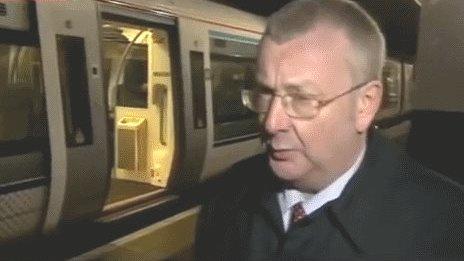Birmingham outlines £4bn tram and bus plan
- Published
The 20-year transport plan for Birmingham could be partly funded by local businesses
Three tram lines could be built in Birmingham, alongside high-speed bus routes, under a £4bn transport plan.
The city council's 20-year Birmingham Connected scheme also includes details for reopening rail lines and building two new stations.
It said it did not currently have "all the funding in place".
Bids are expected to be made for government and European money, but local businesses could also make an "increased contribution".
'No real alternative'
This could take the form of additional "ring-fenced" taxation on businesses or additional business rates, Birmingham City Council said.
Jerry Blackett, chief executive of Greater Birmingham Chambers of Commerce, said transport had been a "key issue" for the city and that "inner-city travelling is fraught with congestion and poor public transit coverage".
He said businesses needed "clarity" on how the plan would be funded and that "blunt instruments" such as a parking levy - a tax on firms with parking spaces - could "stifle economic growth" in the city.
The council said it would also look at the "long-term future" of the A38 through the city centre, including closing existing tunnels and sending traffic along a "substantially upgraded ring road".
Sir Albert Bore, leader of Birmingham City Council, said that could take the form of joining up the tunnels or even creating a motorway under the city.
Dr Pat Hanlon, a transport expert at the University of Birmingham, said a "supertunnel" could not only improve congestion, but open up parts of the city for building, allowing key areas such as Great Charles Street and the Colmore business district to be joined up.
Dr Hanlon said in terms of transport Birmingham had "lost an awful lot of ground to Manchester" in particular.
More than one million car journeys were made into Birmingham each day, the council said, and the current public transport system meant commuters had "no real alternative" to driving.
The council estimated by 2031 there could be an additional 80,000 cars in the city if nothing was done.

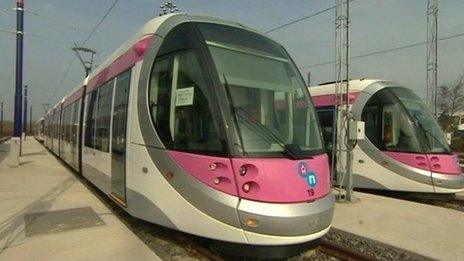
New Metro lines
Linking Centenary Square to Edgbaston
Linking the city centre, Snow Hill station, the new HS2 station at Curzon Street and Digbeth
Extend this line to Birmingham Airport and the NEC via Bordesley Green and Chelmsley Wood
Other "potential" lines include along the A34 Walsall Road, the A38 Bristol Road and the A45 to Birmingham Airport

The council also wants to reopen and upgrade rail routes to Moseley, Kings Heath and Sutton Coldfield, with new stations at Fort Parkway and Castle Vale.
A low emissions zone is planned for the city centre, with incentives for taxis and buses to switch to electric power.

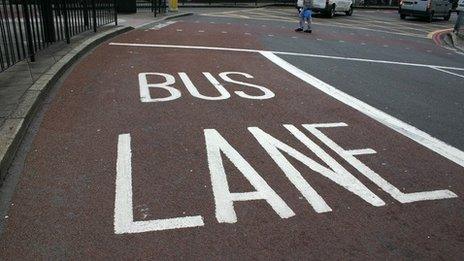
Rapid transit bus routes
Nine routes planned, with the first running on the Hagley Road by 2016
A minimum average journey speed of 20mph
Buses every 10 minutes
Priority lanes and gates at traffic lights
Cashless payment system

- Published6 November 2014
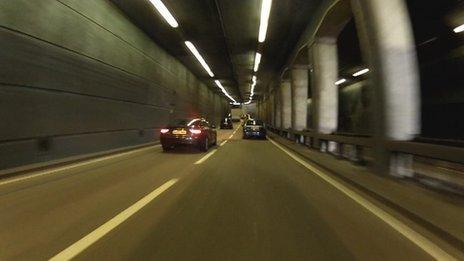
- Published21 July 2014
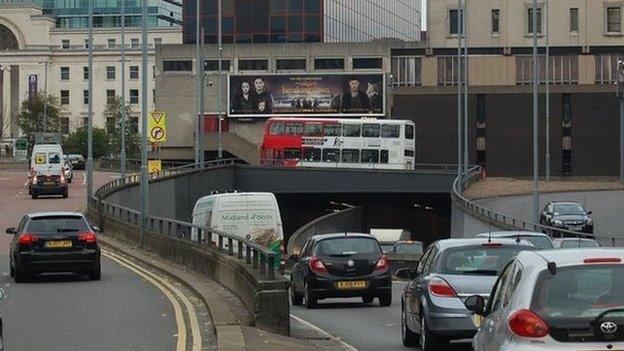
- Published7 July 2014
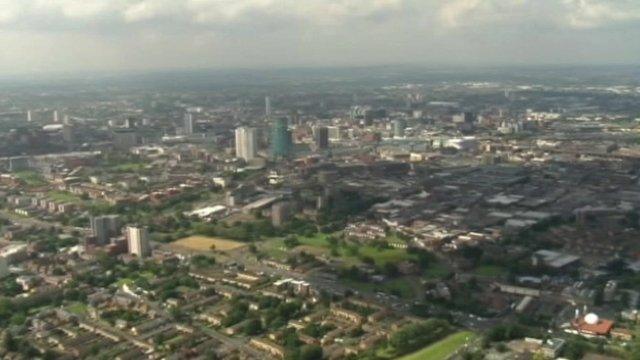
- Published4 April 2014
